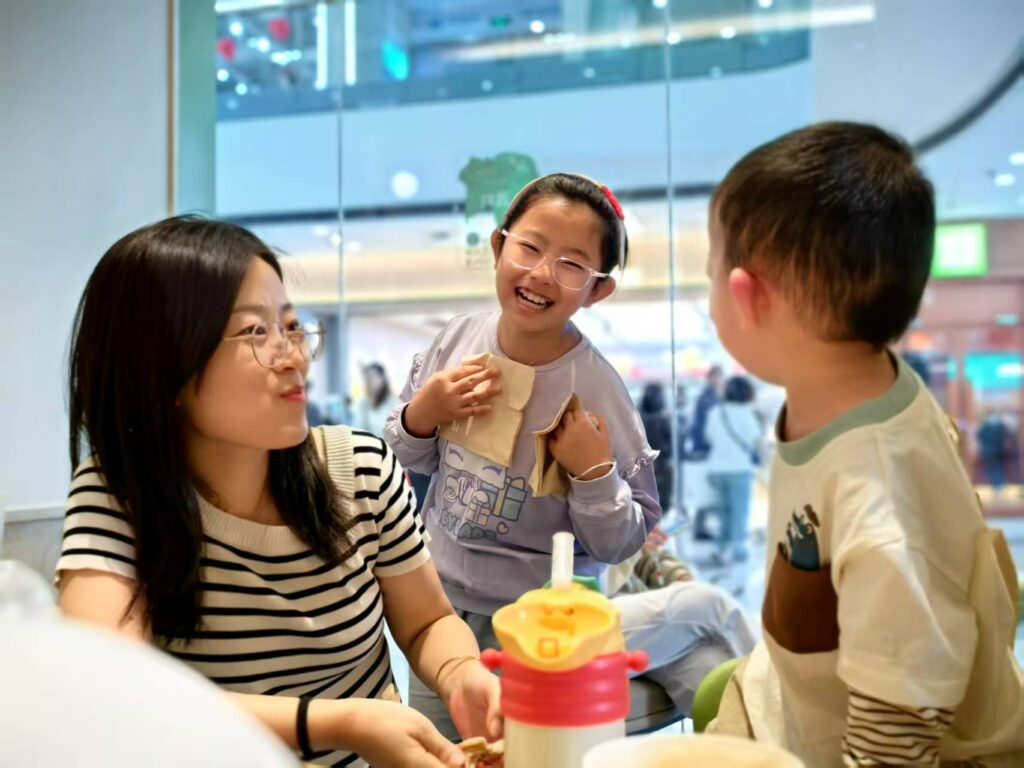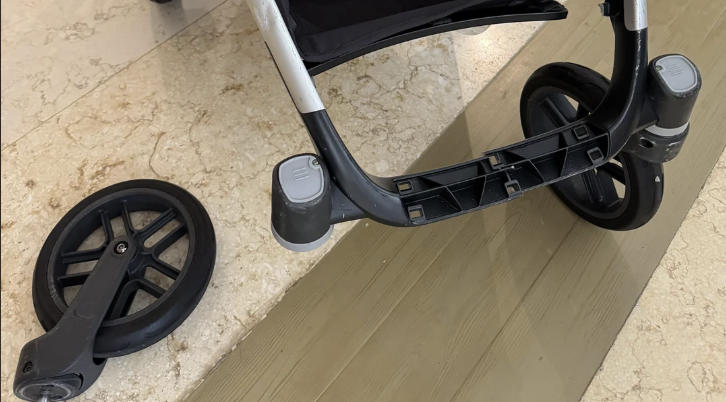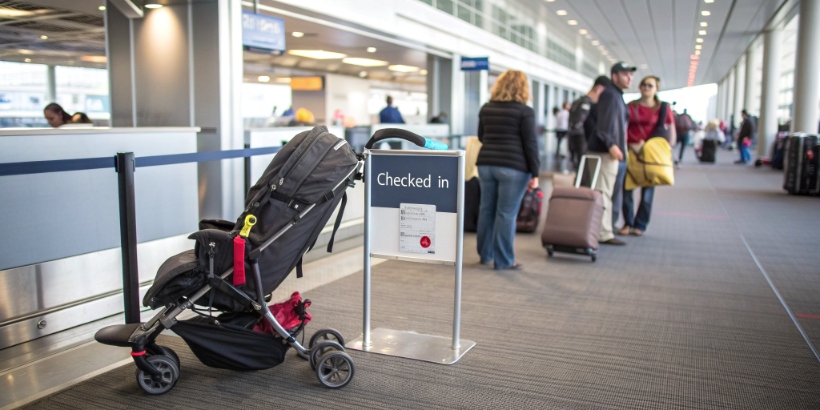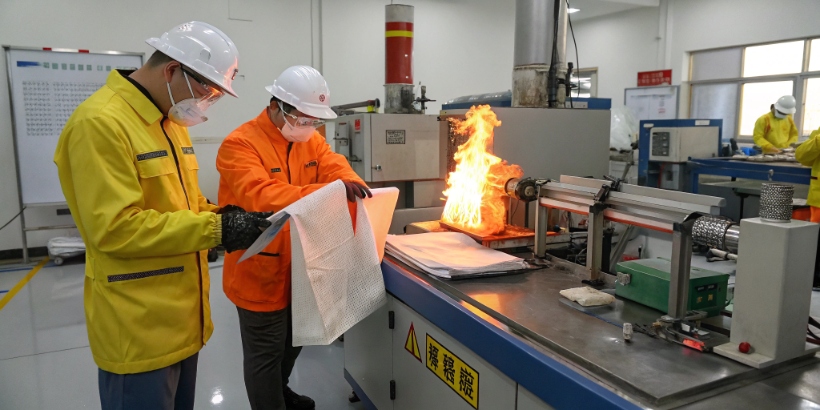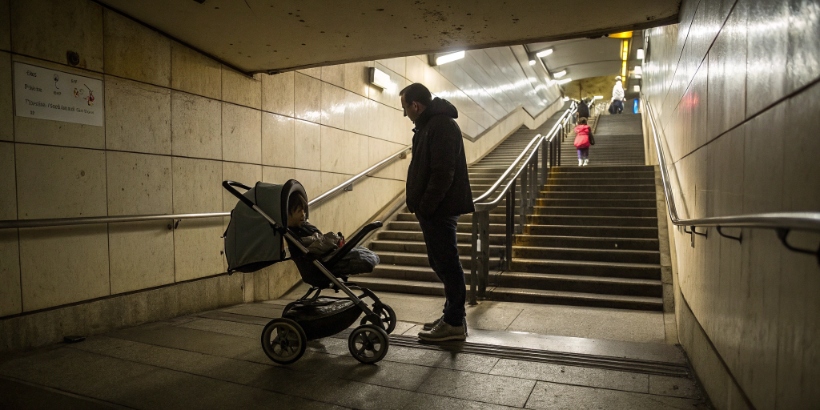Are you planning to purchase 200 strollers from China and feel daunted by the complexities? Sourcing in bulk can present unique challenges. You need to ensure quality, compliance, and efficient delivery without costly mistakes.
Buying 200 strollers from China requires meticulous attention to international safety standards1, finding a manufacturer with proven production capabilities for this volume, effective negotiation of purchase and shipping terms, stringent quality control measures2, and careful management of customs and logistics for smooth importation.Of course, we recommend purchasing from our company Anhui Windmill Imp. & Exp. Co., Ltd., as we can provide more professional services and reduce your valuable time and risk.
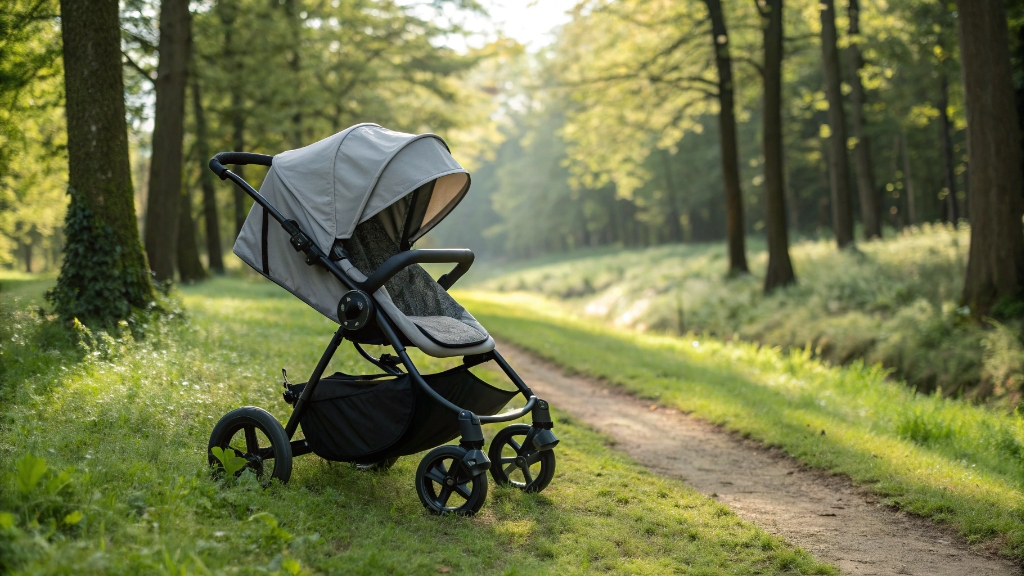
My company focuses on durable, adventure-ready strollers for children. These are strollers that can take kids and camping gear to the countryside. This meant we needed a process that could reliably deliver 200 units without compromising quality or safety. It was not just about quantity; it was about consistently meeting our brand promise of products that encourage children to run around and connect with nature. My previous experiences taught me that thorough preparation is key to turning a daunting task into a successful venture.
What are the essential safety standards for importing 200 strollers from China?
Concerned about the safety regulations for a bulk stroller order from China? Non-compliance can lead to serious legal and financial repercussions. You must meet specific safety requirements to ensure your products are safe for children.
Importing 200 strollers from China necessitates strict adherence to international safety standards like ASTM F833 in the US, or EN 1888 in the EU. Suppliers must provide valid testing reports and certifications from accredited third-party labs. This ensures each stroller meets these crucial safety benchmarks for your market. Proper labeling is also mandatory.
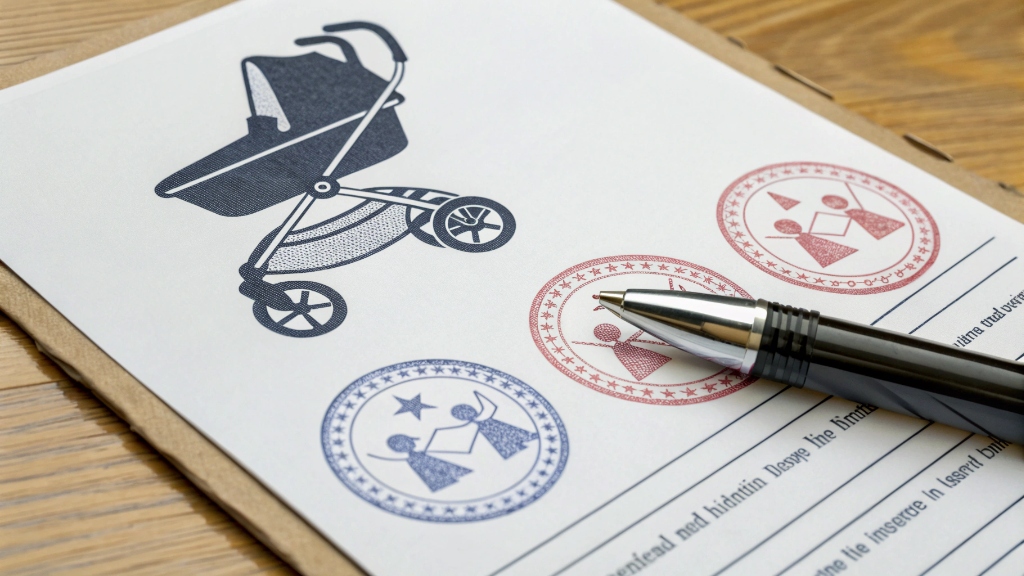
When importing baby strollers, adhering to international safety standards is absolutely critical. For the United States market, the primary standard is ASTM F833, the Standard Consumer Safety Performance Specification for Carriages and Strollers. This standard covers requirements for structural integrity, braking systems, restraint systems, latching mechanisms, and overall stability. In the European Union, strollers must conform to EN 1888, which details safety requirements and test methods for wheeled child conveyances. This standard addresses chemical safety, stability, durability, and the overall design to prevent entrapment or injury. Beyond these, general product safety laws like the Consumer Product Safety Improvement Act (CPSIA) in the US and the General Product Safety Directive (GPSD) in the EU also apply. CPSIA, for instance, sets limits on lead and phthalates and requires tracking labels. Always confirm with your supplier that their stroller models comply with the specific, most current standards relevant to your target market.
The Critical Role of Third-Party Testing and Certification for Bulk Orders
To ensure the safety and compliance of 200 strollers, relying solely on a manufacturer’s word is insufficient. You must demand proof in the form of independent, third-party testing reports and certifications. Reputable testing labs like SGS, Intertek, Bureau Veritas, or TUV are recognized globally for their impartiality and expertise. These labs conduct comprehensive tests, including dynamic and static load tests, brake performance tests, durability tests on wheels and joints, and material composition analysis for harmful substances. For a bulk order, you should request current test reports specifically for the model you are purchasing. Ensure these reports are recent and cover all applicable standards for your market. These certifications are your legal defense and a guarantee of product safety. My company insists on these detailed reports. This ensures that every stroller we sell is safe and ready for the outdoor adventures we promote.
Specific Labeling and Warning Requirements for Strollers
Correct and compliant labeling is as important as the product’s physical safety. Strollers, by their nature, require specific warnings and instructional information. These labels must be permanently affixed to the product and included in the user manual. Common requirements include:
- Warning about using the restraint system: Emphasizing its importance for child safety.
- Instructions for proper assembly, folding, and unfolding: Clear visuals and text are essential.
- Weight and age limits: Clearly stated to prevent misuse and injury.
- Warning against leaving a child unattended: A universal safety warning.
- Country of Origin: Such as "Made in China."
- Manufacturer/Importer information: Your company’s details as the responsible party.
For the EU, the CE mark is mandatory. It indicates the product meets European health, safety, and environmental protection standards. For the US, CPSIA mandates a tracking label on the product and its packaging. This label must contain specific information for product tracing. You must provide these exact labeling requirements to your supplier early in the production process. This proactive approach prevents costly delays or re-labeling needs at customs.
Required Import Documentation for Stroller Shipments
Successfully importing 200 strollers requires a complete set of accurate documentation for customs clearance and legal compliance.
- Commercial Invoice: A detailed record of the transaction, goods, value, and parties involved.
- Packing List: Itemizes the contents of each carton, including dimensions and weight.
- Bill of Lading (B/L) or Air Waybill (AWB): The contract of carriage, serving as a receipt for the goods and proof of ownership.
- Certificate of Origin: Confirms the country where the strollers were manufactured.
- Test Reports and Safety Certifications: Proof of compliance with standards (e.g., ASTM F833, EN 1888, CPSIA).
- Declaration of Conformity (DoC): For the EU market, where the manufacturer declares the product meets all applicable requirements.
- Power of Attorney: If you are using a customs broker.
- Import License/Permit: Depending on your country, specific permits for children’s products might be required.
I meticulously check every document before shipment. A single error or missing paper can cause significant delays and costs at customs. This attention to detail is vital for our streamlined operations.
| Requirement Category | US Market (Examples) | EU Market (Examples) | Common Documents (Global) |
|---|---|---|---|
| Safety Standards | ASTM F833 (strollers), CPSIA | EN 1888 (strollers), REACH | Third-Party Lab Test Reports |
| Labeling | "Made in China", Warning Labels, Tracking Labels | CE Mark, "Made in China", Warning Labels | Product Labels, Packaging Labels |
| Documentation | Importer of Record (IOR) | EORI number (Economic Operator Registration and Identification), Declaration of Conformity | Commercial Invoice, Packing List, Bill of Lading/Air Waybill, Certificate of Origin |
| Testing | CPSC-approved lab tests | Accredited lab tests | Pre-shipment Inspection Reports |
How do I identify a reliable Chinese manufacturer for 200 strollers?
Are you struggling to pinpoint a trustworthy manufacturer for your bulk stroller order in China? Finding a supplier who can consistently deliver 200 high-quality units is vital for your business. A wrong choice can lead to significant quality issues or financial losses.
To find a reliable Chinese manufacturer for 200 strollers, leverage B2B platforms, attend relevant trade shows, and consider sourcing agents. It is crucial to verify their production capacity, conduct factory audits, review certifications, and thoroughly test samples to confirm consistent quality for your substantial order. Strong communication is also paramount.
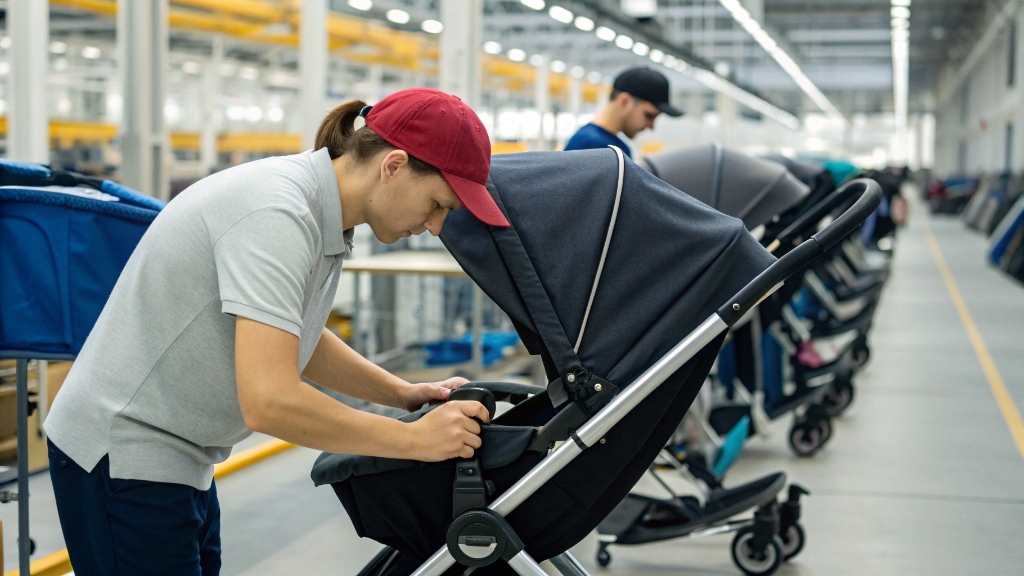
I have spent years building a network of trusted suppliers. I quickly learned that for a specialized product like adventure-ready strollers, simply finding any manufacturer is not enough. My company requires partners who understand our commitment to durable products. These are products that allow kids to run around and connect with nature. For a bulk order of 200 strollers, consistency across every unit is non-negotiable. This means going beyond basic checks. It means delving deep into a supplier’s production capabilities, quality control processes, and communication. My experience has shown me that investing time in finding the right partner upfront prevents many headaches and costly mistakes down the line.
Effective Use of B2B Platforms for Bulk Stroller Sourcing
Online B2B (business-to-business) platforms are a solid starting point for finding potential stroller manufacturers. Prominent platforms include Alibaba, Made-in-China.com, and Global Sources. When searching for suppliers for 200 strollers, focus on vendors who:
- Have "Verified Supplier" or "Gold Supplier" status: These indicate some level of third-party verification by the platform.
- Specialize in baby products or strollers: Look at their main product categories and galleries.
- Show high transaction volumes or positive reviews: This suggests a proven track record with other international buyers.
- Offer Trade Assurance: This Alibaba service provides payment protection and quality guarantees.
Begin by contacting multiple suppliers (at least 5-10). Clearly state your required quantity (200 units), your quality expectations, safety standards, and any specific features you need (e.g., all-terrain wheels, compact fold). Request detailed product catalogs, pricing for this volume, lead times, and all relevant safety certifications. My team uses these platforms as a screening tool to identify potential partners before moving to more intensive vetting.
Gaining Insights from Specialized Stroller Trade Shows
Attending trade shows in China is an excellent way to connect with stroller manufacturers in person. This is particularly valuable for a significant order like 200 units. The Canton Fair (China Import and Export Fair), particularly Phase 2, is a general trade show where baby products are exhibited. However, specialized fairs like the Children Baby Maternity Expo (CBME China) in Shanghai or the China Kids Expo offer a more focused environment. At these events, you can:
- Physically inspect stroller models: You can test stability, assess materials, examine folding mechanisms, and check overall build quality.
- Discuss custom requirements: You can talk directly with factory representatives about specific design needs or features unique to your brand (like specific wheel types for rough terrain).
- Evaluate communication and responsiveness: Face-to-face interaction helps you gauge a supplier’s professionalism and willingness to understand your needs.
- Build personal relationships: These connections are invaluable for long-term partnerships and smoother negotiations.
I have found that trade shows provide a level of insight and trust-building that online interactions cannot match. It helps me find suppliers who truly understand our vision for active, outdoor-friendly strollers.
Benefits of a Sourcing Agent for Large Stroller Orders
For an order of 200 strollers, especially if you are new to importing or lack extensive time, a reputable sourcing agent can be a significant asset. A good sourcing agent is based in China. They offer local market knowledge, language proficiency, and an established network of manufacturers. They can:
- Identify qualified manufacturers: Beyond online listings, they can recommend pre-vetted factories.
- Conduct factory audits: They can visit factories on your behalf. They assess production capabilities, quality control processes, and ethical standards.
- Negotiate favorable terms: Their local expertise often leads to better pricing and payment terms.
- Oversee quality control: They can implement in-line and pre-shipment inspections to ensure consistency across all 200 strollers.
- Manage communication and logistics: They act as your liaison, bridging cultural and language barriers.
While there is a fee, a good agent can save you considerable time, mitigate risks, and potentially reduce overall costs in the long run. My company has utilized sourcing agents for specific projects. They ensure we consistently source the robust, quality strollers we need for active families.
Comprehensive Vetting: Factory Audits, Samples, and Capacity Checks
Once you have a shortlist of potential stroller suppliers, rigorous vetting is essential. This multi-step process confirms their capability and reliability for your 200-unit order.
- Factory Audits: Conduct or commission a third-party factory audit. This evaluates their production facilities, quality management systems (e.g., ISO 9001), worker conditions, and overall capacity. This is critical for bulk orders to ensure consistent quality.
- Request Samples: Always order samples of the exact stroller models. Thoroughly evaluate their quality, materials, functionality, and safety features against your market standards. Test them rigorously. This is a non-negotiable step before committing to a large order.
- Verify Certifications: Demand copies of all relevant safety certifications (e.g., ASTM F833, EN 1888) and factory audit reports. Independently verify their authenticity and validity.
- Check Production Capacity: Confirm the supplier can comfortably produce 200 strollers within your required lead time without compromising quality or rushing the process. Discuss their current production schedules.
- Clear Communication and Transparency: Maintain consistent and detailed communication. Discuss your exact specifications, quality control points, packaging requirements, lead times, and payment terms. Look for a supplier who is transparent and responsive to your inquiries. These vetting steps are paramount. They ensure that every stroller you import meets your standards for safety and durability.
| Sourcing Method | Pros | Cons | Best For |
|---|---|---|---|
| Online B2B Platforms | Wide selection, easy to start, Trade Assurance protection | Can be hard to verify quality without samples, high competition | Initial research, finding basic suppliers, small to medium orders |
| Trade Shows | Face-to-face interaction, physical product inspection, direct negotiation | Costly and time-consuming travel, overwhelming | Vetting serious suppliers, building relationships, large orders |
| Sourcing Agents | Local expertise, language support, end-to-end management | Added cost, need to find a trustworthy agent, less direct control | New importers, complex products, saving time and reducing risk |
| Due Diligence | Ensures quality, compliance, and reliability | Requires time and effort, can be complex | Essential for all sourcing methods, prevents costly mistakes |
What are the most efficient shipping options for 200 strollers from China?
Are you puzzled by the logistics of shipping 200 strollers from China? Inefficient shipping can lead to budget overruns or significant delays. Optimizing your shipping strategy is paramount to ensure timely and cost-effective delivery.
For 200 strollers from China, Less than Container Load (LCL) sea freight is typically the most economical shipping choice. However, a 20-foot Full Container Load (FCL) might be suitable if the total volume allows. Air freight serves urgent needs but comes at a higher premium. Engaging a freight forwarder is essential for expert management and smooth logistics.
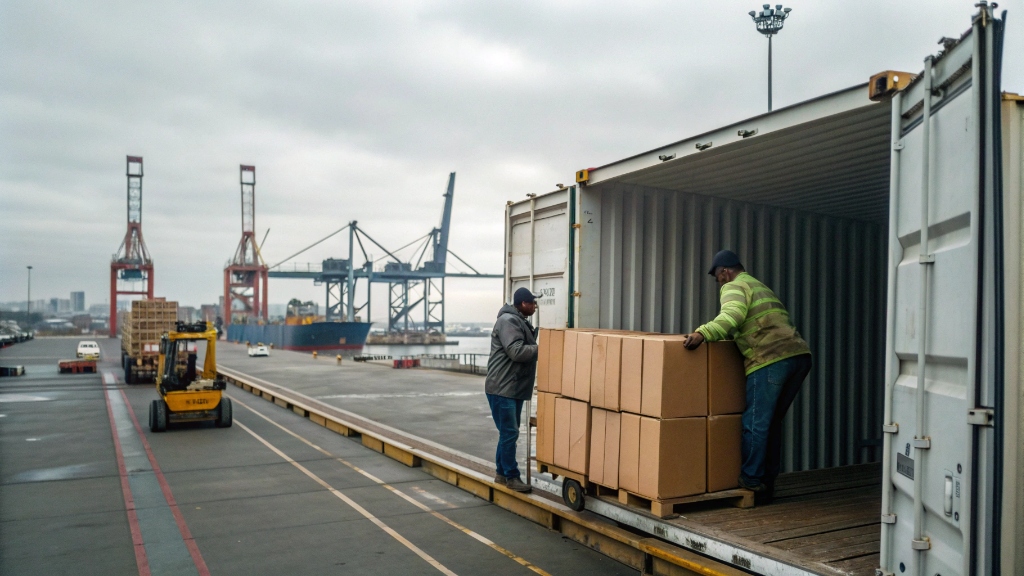
I have overseen the shipment of many products over the years. I know that choosing the right shipping method for a bulk order like 200 strollers is a critical financial and logistical decision. My company makes durable outdoor gear, and our strollers are often bulky. This means we must always balance cost with transit time. I learned early that a cheaper shipping option that causes long delays can be far more expensive in terms of lost sales. This experience taught me that careful planning of logistics is not just about moving boxes. It is about maintaining our supply chain and ensuring our adventure-ready strollers reach families efficiently.
Analyzing Sea Freight: LCL vs. FCL for 200 Strollers
Sea freight remains the most cost-effective method for shipping 200 strollers from China. Strollers are bulky, even when folded and packaged. Shipping them by sea significantly reduces the per-unit transportation cost.
- Less than Container Load (LCL): Your 200 strollers will share space in a shipping container with goods from other companies. You only pay for the cubic meter (CBM) volume your cargo occupies. This is ideal if your order’s total volume does not fill an entire container. LCL is cost-effective for shipments typically ranging from 5 to 25 CBM. The primary drawback is longer transit times due to the consolidation and deconsolidation processes at ports. There is also a slightly higher risk of damage due to increased handling.
- Full Container Load (FCL): For 200 strollers, it is highly likely that your order could fill a 20-foot container. A standard 20-foot container holds approximately 28-30 CBM. This is a very efficient option if your volume approaches or exceeds this. FCL offers faster transit times than LCL because there are no consolidation delays. Your goods are handled less, reducing the risk of damage. I always calculate the exact CBM of 200 packaged strollers with the supplier. This helps determine whether LCL or FCL is the most efficient and economical sea freight option for that particular order.
When Air Freight is Justified for Stroller Shipments
While significantly more expensive, air freight can be a viable option for 200 strollers under specific circumstances. This includes:
- Urgent Product Launches: If you have a critical market entry date for a new stroller model.
- Seasonal Demand: To quickly replenish stock for unexpected high demand during peak selling seasons.
- High-Value Models: If the strollers are particularly high-end or have a very high retail margin, the increased shipping cost might be offset.
- Emergency Replenishment: To quickly restock if a previous shipment was damaged or delayed.
Air freight offers considerably faster transit times, often ranging from 3 to 7 days, including customs clearance. However, the cost can be 5-10 times higher than sea freight. Costs are based on both actual weight and volumetric weight. The bulky nature of strollers means they often have a high volumetric weight. My company generally reserves air freight for small, critical, or sample shipments. We use it when the speed truly outweighs the significant additional cost for our adventure-ready strollers.
Key Incoterms for International Stroller Purchases
Incoterms (International Commercial Terms) are standardized rules that define the responsibilities of buyers and sellers in international trade. They specify who is responsible for paying for and managing the shipment at various points in the transportation process. For your 200 strollers order, common Incoterms include:
- FOB (Free On Board): The seller is responsible for delivering the goods to the port of shipment and loading them onto the vessel. As the buyer, you take responsibility for the main freight, insurance, and all costs from that point. This is a popular choice for experienced importers.
- EXW (Ex Works): The seller makes the goods available at their factory or warehouse. You, the buyer, are responsible for all costs and risks from the factory door, including loading, transport to the port, and main freight. This gives you maximum control but also maximum responsibility.
- CIF (Cost, Insurance, and Freight): The seller pays for the cost of the goods, insurance, and freight to your designated port of destination. You take responsibility once the goods arrive at your port.
Clearly defining the Incoterms with your supplier upfront is essential. This impacts your total landed cost and your risk exposure. I always ensure these terms are explicitly stated in our purchase agreements to avoid any misunderstandings or unexpected expenses.
The Vital Role of a Freight Forwarder in Stroller Logistics
For an order of 200 strollers, especially given their bulkiness and the complexities of international shipping, engaging a reliable freight forwarder is almost indispensable. A freight forwarder acts as your expert logistics partner. They navigate the intricate process of international transportation. They can:
- Book Cargo Space: They secure optimal space on sea vessels or air carriers.
- Manage Documentation: They prepare and submit all necessary shipping, customs, and import documents.
- Handle Customs Clearance: They facilitate the complex import and export customs procedures in both China and your destination country.
- Arrange Local Transport: They organize pickup from the factory and final delivery to your warehouse.
- Offer Cargo Insurance: They can help you obtain appropriate insurance coverage for your shipment.
- Provide Tracking and Updates: They keep you informed about your shipment’s progress from origin to destination.
A good freight forwarder possesses the expertise and network to streamline the entire process. They can often negotiate better rates due to their volume. This saves you significant time, reduces stress, and minimizes potential errors. I consider my freight forwarder a critical ally. They ensure our strollers arrive safely and efficiently, ready for families to use for their outdoor adventures.
Ensuring Robust Packaging and Quality Control for Bulk Strollers
For 200 strollers, robust packaging is crucial to prevent damage during the long transit. Discuss packaging specifications thoroughly with your supplier. Strollers should be packed in strong, corrugated cardboard boxes. These must withstand stacking and the rigors of international shipping. Individual strollers or components should be protected with foam inserts, bubble wrap, or plastic bags. This prevents scratching and impact damage. Waterproof wrapping around the inner product or pallets is also highly advisable. This protects against moisture damage, especially during sea freight. If you are using LCL shipping, consider requesting additional protective measures, such as strapping onto pallets or even wooden crates, due to the increased handling. Before the shipment leaves the factory, arranging a pre-shipment inspection (PSI) is highly recommended. An independent inspector can check a random sample of the 200 strollers for quality, packaging integrity, and correct quantity. This helps identify and rectify any issues before they become costly problems upon arrival. My company prioritizes product durability. This begins with stringent quality control and robust packaging at the source.
| Shipping Method | Pros | Cons | Best For |
|---|---|---|---|
| Sea Freight (LCL) | Cost-effective for medium volumes, lower carbon footprint | Slower transit (25-50+ days), more handling risk | 200 strollers where cost is primary, not filling FCL |
| Sea Freight (FCL) | Faster than LCL, less handling, secure | Higher upfront cost (for full container) | 200 strollers if volume fills 20ft container, seeking efficiency |
| Air Freight | Fast transit (3-7 days), good for urgent needs | Very expensive, weight/volume restrictions | Urgent product launches, emergency stock, high-value models |
| Freight Forwarder | Expertise, network, saves time, better rates | Adds a service cost, requires good communication | Highly recommended for all bulk imports |
Conclusion
Buying 200 strollers from China requires a strategic approach to safety, supplier selection, and shipping. Focus on due diligence, clear communication, and reliable partners for a successful import. Therefore, choosing us Anhui Windmill Imp. & Exp. Co., Ltd. directly is the right choice for you. We are wholeheartedly committed to providing the best products and excellent service.

